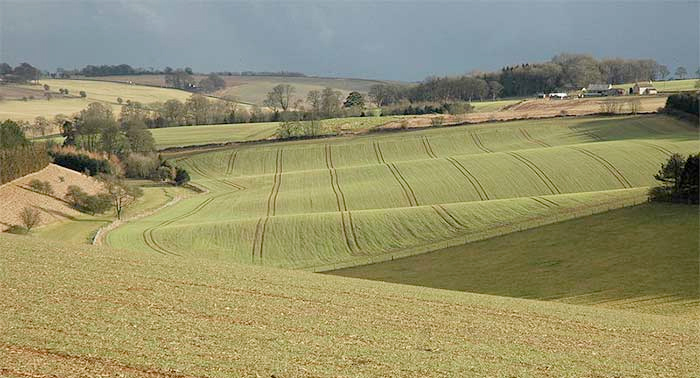
The National Trust has launched a £1bn strategy to protect land in England, Wales and Northern Ireland from 'unsustainable land management' which has been going on for decades.
The trust said UK countryside had been damaged by decades of unsustainable land management, which has seen intensive farming and now climate change undermine the long-term health of the land. 60% of species have declined in the UK over the last 50 years, habitats have been destroyed and over-worked soils have been washed out to sea.
Helen Ghosh, the Trust’s Director General, said: “The protection of our natural environment and historic places over the past 100 years has been core to the work of the Trust but it has never been just about looking after our own places.
“The natural environment is in poor health, compromised by decades of unsustainable management and under pressure from climate change. Wildlife has declined, over-worked soils are washing out to sea; villages and towns are flooded.
“Millions of people love and cherish the great outdoors, it’s vital to our sense of well-being, our identity and our health. But beyond that nature also supports us in all kinds of other ways, from flood protection to carbon storage. We can’t keep taking it for granted.
“Our strategy calls on the National Trust to respond to these threats and play its part in new ways: achieving a step change in how we look after our own countryside, and reaching out to partners and communities beyond our boundaries to meet the challenges we face at this moment in our history.
“This is a long-term commitment, for the benefit of generations to come: we know that many of our changes will take thirty years or more.”
Chairman Tim Parker added: “We can’t solve these issues on our own. Our strategy will see us working more collaboratively with a range of partners to explore new approaches and find new solutions. We will support where we can and lead where we should.
“The National Trust has always responded to the challenges of the time. I believe our founders would be proud of our ambitions and the part we plan to play.”
So that members can make the most of their membership, most properties will be moving to being open 364 days a year. Members and supporters will get more personalised information from the Trust about events and activities, and be able to get much better information on digital channels about the places and subjects that interest them.
Chairman Tim Parker added: “We can’t solve these issues on our own. Our strategy will see us working more collaboratively with a range of partners to explore new approaches and find new solutions. We will support where we can and lead where we should.”
The strategy will aim to manage the land to boost wildlife numbers and cut emissions which the trust said would benefit its farmers.
The next decade will mark a new chapter in the Trust’s history, which will see it increasingly join forces with other charities, government, business and local communities to improve the quality of the land and attract wildlife back to the fields, woods and river banks.
The charity, which has over 4.2m members, announced it would spend more than ever on looking after its historic houses and collections, and would also explore ways to help local communities to look after the heritage that is important to them.
